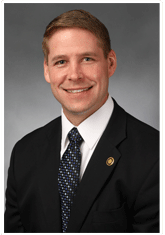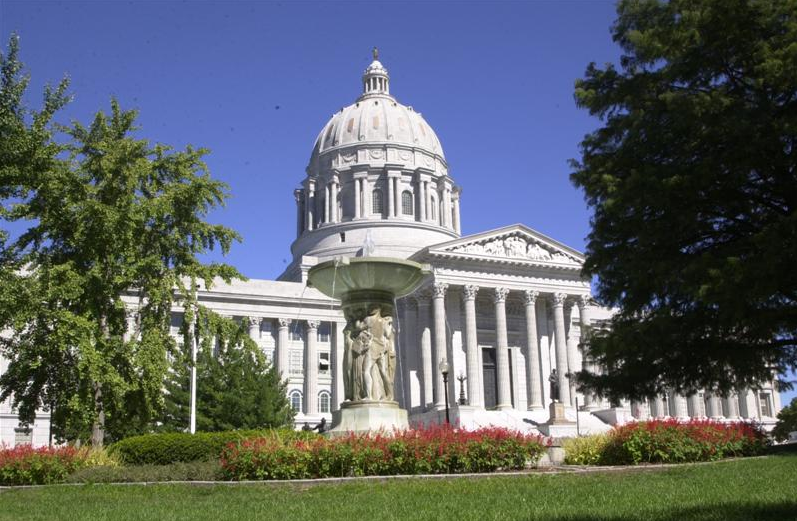Vetoes included bills affecting the Clean Water Commission, the expert witness rule and the collateral source rule.
JEFFERSON CITY, Mo. – Gov. Jay Nixon took action on several bills from the legislative session, signing seven and vetoing eight.
Of the seven bills signed by the governor, he chose to highlight SB814, which allows Missouri residents who are active duty members of the armed forces to deduct 100 percent of their income.
“Military families are pillars of their communities, and this bill will help encourage even more of them to call Missouri home,” said Gov. Nixon. “This is a sensible, affordable tax cut that makes sense for Missouri, and I’m pleased to sign it into law today.”
Sen. Will Kraus, R-Lee’s Summit, a co-sponsor of the bill, praised SB814’s passage.

“I am pleased the governor signed this bill aimed at creating a more military-friendly environment in Missouri,” Kraus said. “Military-friendly policies are important in thanking those who serve and keeping our Missouri military members as residents, which builds our economy.”
One of Kraus’ sponsored bills was also signed, SB823, which would prohibit Missouri from being able to tax access to the internet.
“I am pleased the governor chose to sign this bill, as levying any sort of internet tax would reduce usage among people we’ve working to give better access over the past several years,” Kraus said. “I would not want citizens to be unable to afford such a vital tool to participating in the economy because the government puts a tax on it.”
The bill also delays the implementation of a state supreme court decision levying a sales tax on technology companies, what Kraus said amounts to a $1 billion tax increase on these businesses.
“Since the case was decided in April, there simply wasn’t enough time to give fair hearing and discussion to a bill that would clarify the statute in question,” Kraus said. “The goal of this provision was to postpone the tax increase so the Legislature can draft legislation to ensure we are not raising taxes on job creators and ensure Missouri retains these well-paying jobs.”
Among the eight bills Nixon vetoed was legislation that his office says would have weakened the Missouri Clean Water Commission by shifting power on the board in favor of special interests. HB1713 would have accomplished this by changing the commission’s membership requirements and allowing it to operate without members.
“This change would effectively pave the way for regulated interests to seize control of the commission and would eliminate the public’s voice in the water quality control efforts under the purview of the commission,” Nixon wrote in his veto letter.
Nixon also vetoed:
- SB591, a change in the state’s laws regulating the qualifications of expert witnesses in the state’s courts. A veto had been expected on a bill heavily opposed by the Missouri Association of Trial Attorneys.
- SB847 would have changed Missouri’s collateral source rule and was also opposed by MATA. Neither the expert witness bill nor this bill passed with a veto-proof majority.
- SB844 would have changed current animal trespass law so that livestock owners are not civilly liable for damages that occur when their animals trespass. It was approved in both chambers by a veto-proof majority.
- SB641 could eviscerate the 2017 budget, Nixon said, by requiring the state to issue over $50 million in refunds for taxes paid on payments specifically intended to replace lost income. The bill did not gain a veto-proof majority in the House.
- HB 2030 would have reduced general revenue collections by as much as $10.3 million annually by creating a special interest tax break without requiring the creation of any new jobs, for capital gains realized from the sale or exchange of employer securities in an employee stock ownership plan (ESOP), according to Nixon in his rationale for vetoing the bill. The bill was passed with veto-proof majorities in both chambers.
- SB 1025 would exempt “instructional classes” offered at businesses like dance studios, martial art studios and gymnastic centers from sales tax. This bill also gained veto-proof majorities in both chambers.
- HB 1432 requires a hearing to be held within 60 days if a state employee is placed on administrative leave. It also received veto-proof majorities in both chambers and passed the Senate unanimously.
The five other bills signed by Nixon include:
- HB 1435, which expands the ability for non-profits and other organizations to receive refunds if they are incorrectly charged sales or use tax;
- HB 1582, relating to withholding tax filing requirements and will allow businesses to file W-2 forms electronically.
- HB 1717, which requires a public water system that intends to add or remove fluoridation from its water supply to notify its customers at least 90 days prior to any vote on the matter;
- HB 2381, relating to property tax on mines;
And SB 794, which clarifies laws relating to the taxation on medical equipment such as wheelchairs.












